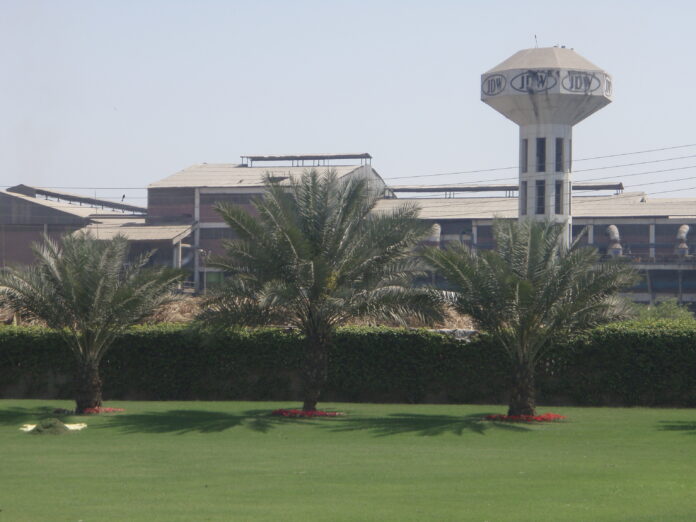For a politician, one can expect that Jahangir Khan Tareen has been called many things in life. However, even by political insult standards, one has to admit ‘cheeni chor’ is a pretty entertaining one. The pithy jab was lobbed by Pervez Khan Khattak, the current Defense Minister of Pakistan, and a member of the ruling party Pakistan Tehreek-e-Insaf (PTI), to which Tareen also belongs.
Profit is not in the business of determining who is a chor and who is not; that is a matter for the courts to decide. Nor are we interested in the PTI’s infighting, no matter how ludicrous (for more on this, reader, consider our sister satire publication, The Dependant). However, we can confidently say chor or not, Tareen is definitely Pakistan’s undisputed cheeni mogul, if nothing else. He was chief executive officer (CEO) of the largest sugar mill in Pakistan, JDW Sugar Mills, a company that is at least three times as big as the second largest mill, with the greatest market share as well.
That is, until November 16, 2020. In a notice issued to the Pakistan Stock Exchange (PSX), the company declared that Tareen had resigned as CEO, effective immediately and that Raheel Masud had been appointed the new CEO.
It is a strange fate for the sugar mogul. It seems difficult to imagine now, but Tareen was not always involved in politics. In fact, his career really began in the sugar business, when he got married. He inherited his first sugar mill in Rahim Yar Khan, from his father-in-law Makhdoom Hasan Mehmood, a political figure in the 1970s and 1980s.
JDW was founded as a private limited company in May 1990, and was subsequently converted into a public limited company in August 1991. From the original Rahim Yar Khan unit, the company expanded and went on to acquire two more units; JDW Unit 2 (formerly United Sugar Mills) in 2005 in Rahim Yar Khan, while JDW Unit 3 (formerly Ghotki Sugar Mills) in Ghotki was incorporated in 2006.
Today, the company produces 640,278 mega tons of sugar, while the combined output of the company is close to 19.97% of the country’s total sugar production.
The company has three wholly owned subsidiaries: Deharki Sugar Mills (Pvt.) Ltd, Sadiqabad Power (Pvt) Ltd, and Ghotki Power (Pvt) Ltd. It has 58% stake in Faruki Pulp Mills Ltd, and a 47% stake in the associate company JDW Power Ltd. Interestingly, the company has also set up two bagasse-based, high-pressure co-generation power plants with a total capacity of approximately 53 MW, both of which were launched in 2014.
In 2019, JDW had gross sales of Rs54,724 million compared to 2018’s Rs 40,251 million, while the company’s profit after tax stood at Rs553 million, compared to 2018’s loss of Rs203 million. In fact, 2018 is the only time in the last six years in which the company ever experiences a loss. And 2019’s profit is the lowest in six years as well: between 2015 and 2017, the company made between Rs1,500 million and Rs2,000 million in profit.
And who benefited from this state of affairs? As of 2019, Tareen had a 16.4% share in the company, while his wife had a 3.8%.
Again, that would not have been anything to comment on (businessman making money, so what), except ever since Tareen joined politics, that is all anyone has wanted to comment on. In 2002, Tareen entered politics and joined the Pakistan Muslim League-Functional (PML-F) serving as a federal minister for industries. Reportedly, his critics allege his sugar business benefited during the Musharraf era, as he was at that post for five years.
Then, in 2011, he joined the PTI. He lost in the 2013 general elections for a National Assembly seat (NA 178 from Rahimyar Khan), but won the by-elections in 2015 from the same seat, after the Supreme Court voided the results of the 2013 election. He was then disqualified in 2017 for not disclosing his assets.
Still, throughout all this drama, JDW continued crushing sugarcane, and producing sugar, an impressive feat all things considered. Perhaps unlike other sugar mills, that often serve as pure-play rent-seeking operations for politicians, this is the closest we have to an actual sugar business. Its sheer size is attributable to some few well-timed acquisitions, that each produce a lot of sugar.
And yet, this view is severely challenged by allegations that came in the form of the sugar inquiry of 2020. According to the report, JWD has received 12% of the total export subsidy amounting to Rs3 billion during 2015-18, and during 2018-19, JWD exported 17% of the total production of sugar and availed 22% of total export subsidy. The inquiry committee said that the export of sugar was not justified as sugarcane production was expected to be low in harvesting season 2018-19, and with the export of sugar in Jan 2019, the prices of sugar sharply increased. Exporters like JWD were able to gain a subsidy, and by increasing prices.
In conversations with analysts, it was said that precisely because of the nature of allegations, it was better if Tareen did step down. Resigning on his part was a gesture of good faith, that he did not have a business interest conflict. It makes all the more sense considering he is still a member of the party in power.

























